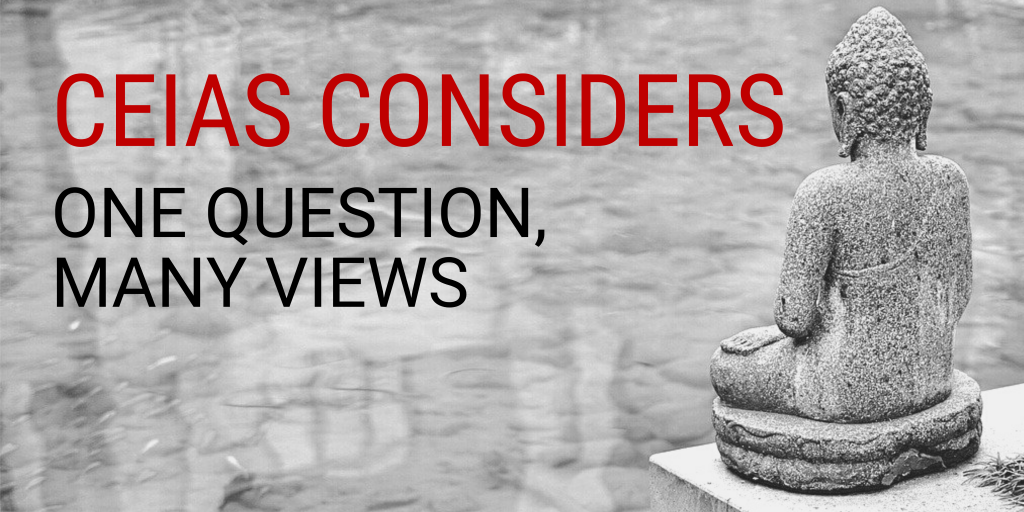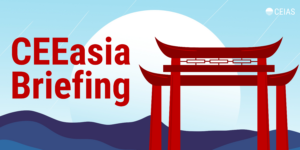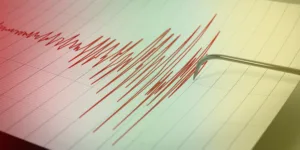
V4-South Korea trade was worth $16.8bn last year. How far can relations progress?
The V4-Korea Business Forum was held in Budapest on November 3rd, where South Korean President Moon Jae-was on a state visit that week. South Korea’s trade with the V4 reached US$16.8 billion last year, while the group of four countries is South Korea’s biggest exporting market within the EU, accounting for 28 percent of the country’s exports to the EU. That makes the V4 group South Korea’s second-largest trading partner in the EU, after Germany.
For “CEIAS Considers” this week, we asked experts from the region for their opinion on the future of V4-South Korea relations.
 Lucia Husenicová
Lucia Husenicová
Board Member of CEIAS, and associate professor at the Faculty of Political Science and International Relations at the Matej Bel University in Banská Bystrica
Relations between Visegrad countries and the Republic of Korea (V4-ROK) are very important for all involved parties. The core of the relations are investments of South Korean companies in the V4 region.
From a South Korean perspective, the region is very important for its trade relations with the EU, as most of the production of these companies is sold to other EU member states. When we look at the map of the companies operating in V4, we can see they are close to borders, and it suggests that South Korean companies perceive the region as one unit. What proves to be the most valuable area of mutual V4-ROK cooperation is South Korean financial support to the Visegrad Fund through which projects of assistance with the fight against COVID-19 in Ukraine and Georgia are financed.
The perception of the governments of V4 countries of the relations with South Korea is rather different. We must frankly admit that the countries are competing over investments and do not cooperate of coordinate among themselves. This was already obvious as South Korea was seeking to deepen cyber security cooperation with the group, however, the cyber legislation was too diverse for the V4 countries to find common ground.
However, the V4+1 channel is regularly used by all countries to meet with representatives of the South Korean government. On November 4, 2021, there was a seventh memorandum of understanding signed, in Budapest and the five parties agreed to pursue further cooperation in electric mobility, secondary battery production, and biotechnology. Another unrealistic plea was made by the Hungarian prime minister who has called on President Moon Jae-in to encourage South Korean railway infrastructure companies to build fast train connections among V4 capitals, which is a long-term discussed issue in the region. In addition, the potential for defense cooperation was discussed, even though the Slovak government has already excluded South Korean defense companies from the ongoing procurement of infantry fighting vehicles for political reasons.
If we want to answer the question, we need to look inside to the V4, and mutual relations of all parties involved. Undoubtedly the V4 was and is playing an important coordinator role of involved parties. Unfortunately, we must also accept that there are challenges related to the political and ideological differences among the ruling governments, which transgresses the regional level and is obvious on the EU level. The Hungarian government and its policies are criticized and there are indications that Slovak and Czech governments will try to distance themselves. In addition, the mentioned ongoing competition among all V4 members over more investments at their territories, and therefore lack of any coordination remains an obstacle in further development of mutual V4-ROK relations that would transgress the level of bilateral cooperation.
 Marcin Jacoby
Marcin Jacoby
Associate Professor and Head of Department of Asian Studies at the SWPS University, Warsaw
The Republic of Korea has been active in CEE since the late 1980s, even before the political transformation of the block. Despite dynamic Korean investments (e.g. Daewoo in Poland from 1996), V4 states have been quite slow and timid in the past thirty years in their attempts at shaping their relations with the ROK. As a result, V4 states are perceived in Korea as relatively good investment destinations for Korean business, but not more than that. There is little awareness among the V4 decision-makers of how attractive a partner ROK might potentially be for this region, in terms of innovation, hi-tech, the medical, or the military field. Also, in the face of rising pressure from the US for the V4 countries to decrease cooperation with P. R. China, Korea could be a natural East Asian partner for hi-tech products and services which the EU or the US does not possess. If Korea maintains its foreign policy direction after the 2022 presidential elections, it will need strong, international support in its efforts to arrive at finalizing the Korean War peace treaty, demilitarizing the Korean Peninsula, and perhaps opening up the North for investments. V4 countries could use this opportunity to deepen their ties with the ROK beyond passive reception of Korean business investments, towards factual partnership. This could be highly beneficial for our region in the long term. The November V4-South Korea Summit is a good step in this direction, provided that it is followed by coherent and visible actions which could persuade the ROK about the genuine wish of V4 states to build stronger, mutually beneficial ties with South Korea.
 Blanka Ferklová
Blanka Ferklová
Assistant Professor at Palacký University Olomouc
Recently, on 4 November, the second summit of the V4 countries and the Republic of Korea took place in Hungary. The conclusions of the summit present a number of plans and proposals for further cooperation in various areas, which may to some extent give an indication of the future of relations between the V4 countries and the Republic of Korea. In the first place, we can mention the very topical cooperation in the difficult conditions of the Covid-19 pandemic and the joint search for solutions to the impact of the pandemic at the socio-economic level.
A number of projects are a continuation and development of previous cooperation, such as the plan for the development of the battery industry in V4 countries, which is important, for example, for the production of electric vehicles, the production of which started last year at the Hyundai car plant in the Czech Republic. The issue of cooperation in the field of nuclear energy is very important for the Czech Republic, for example, the South Korean company KHNP (Korea Hydro & Nuclear Power), which has already entered the advertising and public space some time ago. However, no decision has yet been taken on its participation in the expansion of the Dukovany nuclear power plant. If cooperation does take place, a large influx of Korean capital and technology can be expected, not only through the influence of the aforementioned company, but also through the entry of a number of other companies with which it cooperates, similar to the case of the Korean car companies settled in the Czech and Slovak, and thus a significant strengthening of economic and technological cooperation. After almost two Covid-19 years, mutual tourism, which was once so intense, has largely died down. Before around 400 thousand Korean tourists used to visit the Czech Republic annually. The revival of this sector envisages, in particular, the restoration of the direct Prague-Seoul flight connection. I also consider cooperation on digitization and the development of digital technologies to be very important, as is the commitment to continue joint initiatives in the areas of higher education, science, technology and innovation, etc. in the Research Programme and the Knowledge Sharing Programme.
 Alica Kizeková
Alica Kizeková
Senior researcher and head of the Asia Pacific Unit at the Institute of International Relations Prague
On various occasions, South Korean representatives stressed that the V4 space serves South Korea as a bridge to Europe. After Germany, the V4 is the second-largest trading partner and counts for 28 percent of South Korea’s exports to the EU. Importantly, unlike many, including some V4 countries, there is a genuinely positive outlook from Seoul to engage with the bloc as is, without seeing it as a “troublemaker“ in Europe.
Additionally, under the V4+ South Korea format, there is an important collaboration taking place in third countries, where they jointly assist fight against the Covid-19 pandemic. Namely, South Korea has co-funded help in Georgia and Ukraine. Under two separate projects, the financial contribution from Seoul will help supply urgent IT and medical equipment and provide staff training in Georgia (€100,000) and medical assistance to hospitals in Ukraine (€80,000). It is likely that there will be more engagements in near future, with growing interest to fund the joint projects in the sphere of electric cars or secondary batteries.
Nevertheless, the V4 countries will ultimately aim to interact with South Korea more bilaterally. From the perspective of the Czech Republic, which has been working under the agreed Action Plans for the Implementation of the Strategic Partnership, multi-sectoral cooperation has been underway raging from cyber security, defense, and crime to innovations and possibly in nuclear power. For now, the Czech-South Korea relations do not get much coverage in the Czech media, which has a tendency to report on developments surrounding North Korea. This might change with the incoming government since the Czech Coalition parties have signed the Coalition program which clearly stipulates working with like-minded countries such as South Korea, and conduct an audit on Czech ties with China to see what tangible benefits there have been considering the promised investments and strong support from the president and other decision-makers.








